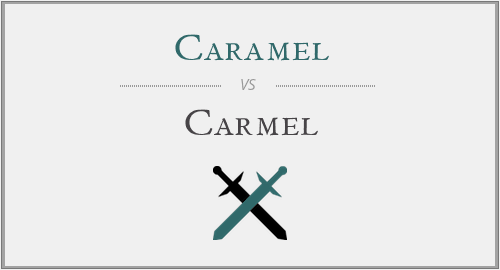Caramel vs. Carmel: Navigating Pronunciation and Spelling
Understanding the differences between "caramel" and "carmel" involves recognizing variations in pronunciation and spelling. This article aims to clarify the distinctions between "caramel" and "carmel," shedding light on their meanings, applications, and appropriate usage in various contexts.
Correct Usage:
Caramel:
"Caramel" is the correct and widely accepted term referring to a sweet, chewy, or creamy confection made by heating sugar, butter, and sometimes milk or cream. It is commonly used in desserts, candies, and various culinary applications.
Carmel:
"Carmel" is a less common variant and may be considered a mispronunciation or misspelling of "caramel." In standard English usage, "caramel" is the preferred and correct term.
Meanings and Applications:
Caramel:
Use "caramel" when referring to the sweet confection made from heated sugar, butter, and often milk or cream. It is a versatile ingredient in baking, candy making, and various culinary creations.
Carmel:
Avoid using "carmel" as it is considered a non-standard variant. Stick to the correct term "caramel" to ensure clarity and adherence to standard English usage.

Examples:
Correct: The chef drizzled warm caramel over the dessert for added sweetness.
Avoid: The recipe called for a topping of carmel sauce.
Contextual Considerations:
Always use "caramel" as it is the correct and accepted term in standard English. "Carmel" is considered non-standard and may lead to confusion or be perceived as an error in spelling or pronunciation.
Conclusion:
Navigating the distinctions between "caramel" and "carmel" involves recognizing the correct term and avoiding non-standard variations. Whether discussing desserts, candies, or culinary delights, using "caramel" ensures clarity and precision in language use.




Have a discussion about this article with the community:
Report Comment
We're doing our best to make sure our content is useful, accurate and safe.
If by any chance you spot an inappropriate comment while navigating through our website please use this form to let us know, and we'll take care of it shortly.
Attachment
You need to be logged in to favorite.
Log In